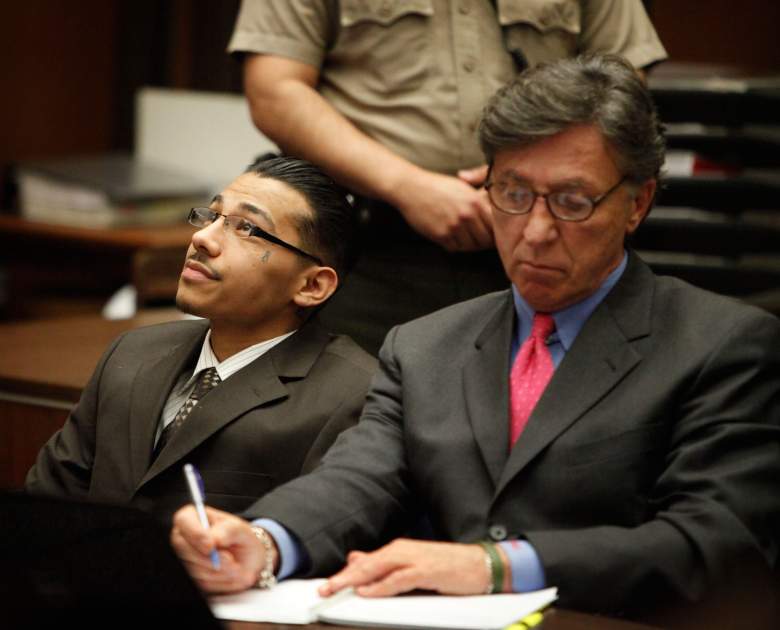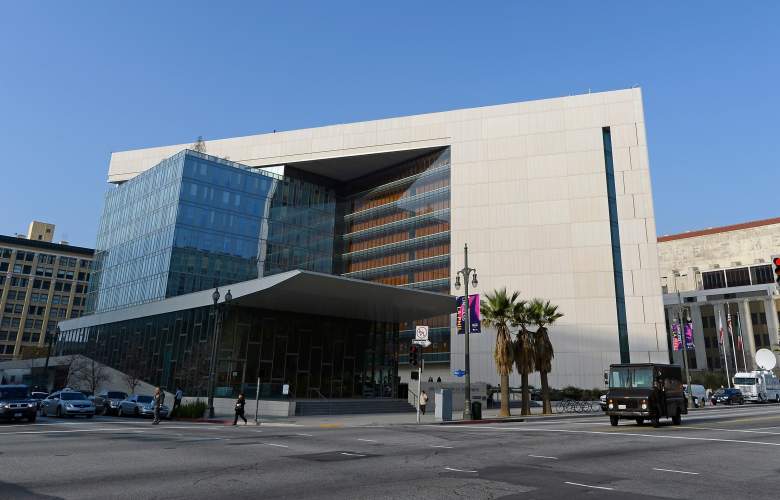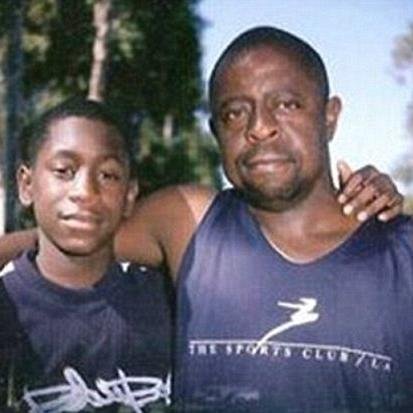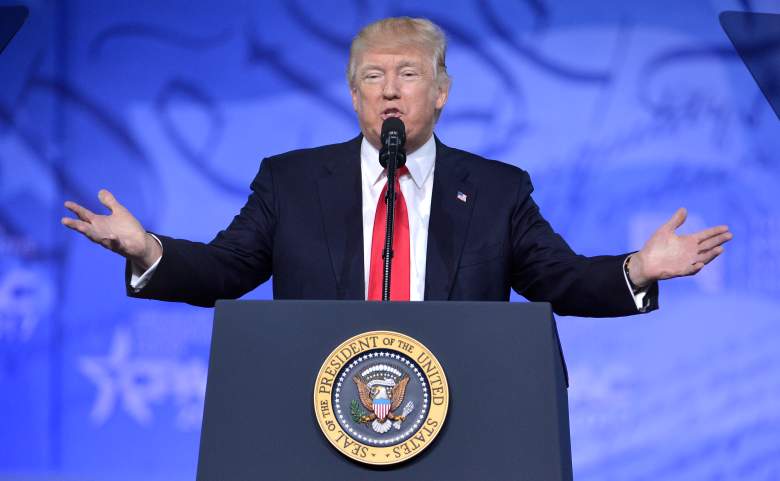
Pedro Espinoza reacts after the jury announce their verdict on May 9, 2012 in Los Angeles, California. (Getty)
During Donald Trump’s address to Congress on Tuesday evening, the president is expected to bring up the case of Jamiel Shaw and Pedro Espinoza.
Pedro Espinoza was a gang member and undocumented immigrant who in 2012 was convicted of killing Jamiel Shaw Jr., a 17-year-old high-schooler. Throughout his presidential campaign, Trump frequently cited instances of undocumented immigrants committing murders after having been released from jail, using cases like Shaw’s as examples for why the United States needs stricter immigration laws.
Here’s what you need to know about Pedro Espinoza and the murder of Jamiel Shaw.
1. He Was Convicted of Shooting Jamiel Shaw Because He Mistook Shaw For a Member of a Rival Gang
Pedro Espinoza was a part of the 18th Street Gang, a street gang in Los Angeles, California. On the evening of March 2nd, 2008, Shaw was walking home from the mall when he was confronted by Espinoza and asked what gang he belonged to.
According to the Los Angeles Times, Espinoza thought that Shaw was a Bloods gang member because he was wearing a red backpack. In fact, Shaw was carrying a Spider-Man backpack.
When Shaw did not respond to Espinoza’s question about what gang he belonged to, he was shot in the stomach and then in the head.
2. Espinoza Was Undocumented & Had Just Been Released From Jail the Day Before

Los Angeles Police Department officers are deployed around the police headquarters on February 7, 2013 in Los Angeles, California. (Getty)
Espinoza was brought to the United States from Mexico by his mother when he was an infant. According to the Los Angeles Times, Espinoza’s mother had fled to the U.S. to escape an abusive partner, only to end up with another abusive partner in America.
The day prior to the murder of Jamiel Shaw, Espinoza was released from the Los Angeles Police Department on prior gun charges, according to Fox News. He was given a four-month early release from jail.
The Shaw family in 2009 sued the Los Angeles Police Department for releasing Espinoza from jail even though he was undocumented. The lawsuit alleged wrongful death, civil rights violations, and a violation of the U.S. Immigration and Nationality Act, but that lawsuit ended up being dismissed.
3. During the Trial, Espinoza’s Attorney Argued That He Should Be Spared the Death Penalty Because He Had a Tough Life
During the trial of Pedro Espinoza, Espinoza’s attorney, Csaba Palfi, argued that his client should not receive the death penalty, asking the jurors to consider the difficult life that Espinoza had. According to the Los Angeles Times, Palfi cited Espinoza’s abusive home life and said that he was groomed for violence.
He also said that executing Palfi would serve as nothing more than a Band-Aid on the hemorrhaging wound that is gang violence.
“We can kill him,” Palfi said. “But it’s not going to stop anything. It’s not going to fix anything.”
Palfi also pushed for a new trial, citing the fact that the court would not allow in supposed evidence of Shaw legitimately being affiliated with a Los Angeles gang.
4. He Was Sentenced to Death
In November 2012, Pedro Espinoza was sentenced to death.
Right before the sentence was read, Jamiel Shaw’s father said that he has no sympathy for Espinoza.
“He thought he was big, bad Pedro. But now that it’s time for judgment day, he doesn’t want to be executed,” Shaw said, according to the Los Angeles Times. “These kind of people don’t deserve to walk among us.”
According to the California Department of Corrections and Rehabilitation, Espinoza is still on death row as of February 2017.
5. The Murder Took Place in Los Angeles, a ‘Sanctuary City’
The murder of Jamiel Shaw sparked a nationwide political debate, mainly because the shooting took place in Los Angeles, which is a so-called “sanctuary city.”
This is an unofficial term that refers to cities that welcome undocumented immigrants and in which police generally do not inquire about a person’s immigration status or enforce federal immigration laws. For 40 years it has been the LAPD’s policy to not ask local police officers to enforce federal immigration laws.
In the aftermath of the shooting, Shaw’s family supported “Jamiel’s Law,” which was written by Walter Moore, a candidate for mayor of Los Angeles in 2008. The law would deny “sanctuary city” protection to illegal aliens in gangs in Los Angeles. Shaw’s family fought for this to appear on the ballot in 2008, but they were unsuccessful.
A recent executive order signed by President Trump calls for federal agencies to withhold federal funds from “sanctuary jurisdictions.” Los Angeles Mayor Eric Garcetti has vowed to fight back against this order, and he disputes the claim that Los Angles does not cooperate with the federal government when it comes to immigration.
“The idea that we do not cooperate with the federal government is simply at odds with the facts,” the mayor said in a statement in January, according to LA Weekly. “We regularly cooperate with immigration authorities — particularly in cases that involve serious crimes — and always comply with constitutional detainer requests. What we don’t do is ask local police officers to enforce federal immigration laws — and that’s an official LAPD policy that has been enforced for nearly 40 years. That is for everyone’s good, because trust between police and the people they serve is absolutely essential to effective law enforcement.”
Jamiel Shaw Sr. supported Donald Trump during the presidential election, meeting with Trump and holding a press conference with him in July 2015, one month after Trump launched his campaign and said that many undocumented immigrants coming to the U.S. from Mexico are rapists and murderers.
“I felt happy for the first time,” Shaw told Fox News when asked about his reaction to Trump’s comments on undocumented immigrants. “When that happened, I felt good. I felt hope. This is the hope that Obama thought he was gonna get. That was false hope.”

